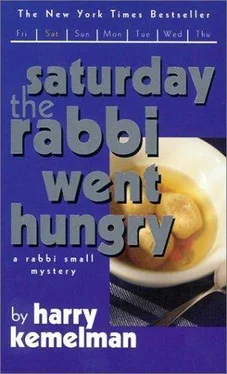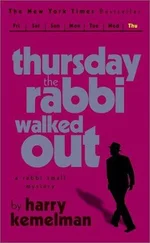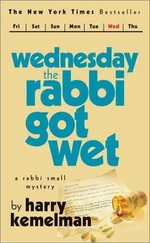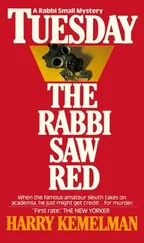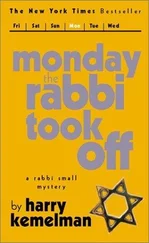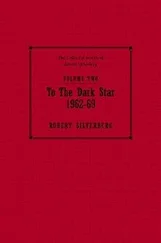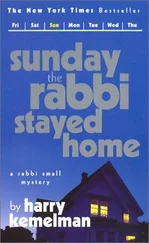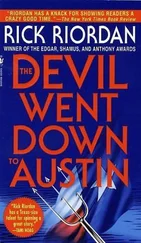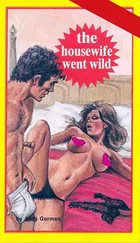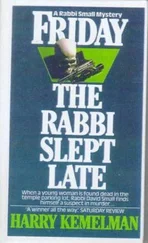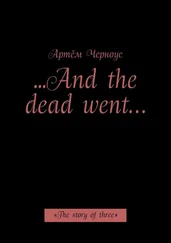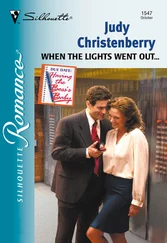“It’s even more ironic than you think,” said the rabbi. “Sykes, when he came to visit me that Sunday, remarked that Hirsh would have been alive if he had been a normal practicing Jew.”
“That’s no lie. Anyway, we typed up his confession and he signed it,” Lanigan went on. “Then we sprung the wiped fingerprint on him. We thought that would break him. You see, if we had mentioned it at the beginning he would have realized it was first-degree murder and probably would have refused to talk. This way, at least we had a confession for the major part and if he broke we’d have it all. He clammed up. Refused to say another word until he conferred with a lawyer.”
“But you had your case anyway.”
Lanigan shook his head gloomily. “After his lawyer got through talking to the D.A., we didn’t have much of anything. The fingerprint-or rather the missing fingerprint- would have been peppered by defense counsel. He would have shown that we had men all over that car. He would have argued that one of us could have wiped it accidentally with his sleeve. And the confession? They could say it was obtained under duress.”
“And getting home from the lab-how could that be explained away?”
“Easy. He started out to walk to the garage and someone gave him a lift. He doesn’t remember the make of car and the driver didn’t give him his name. After all, no one saw him near the Hirsh house.”
“Peter Dodge did.”
“Peter-the minister? When did you see him?”
“He dropped in this morning. He got home from Alabama yesterday.”
“And he saw Sykes?”
The rabbi nodded. “He takes a walk every evening, and it leads him past Bradford Lane. He had planned to drop in on Hirsh for a talk, but as he came to the corner he saw the house was dark so he went right past. But he did see Sykes-he’s sure that’s who it was-walking down Bradford Lane in the other direction toward his home, of course. At the time he had never met the man and just assumed it was someone taking a walk like himself.”
“Why didn’t he come forward and tell us?”
“Why should he? He didn’t know that there was murder involved.”
Lanigan began to laugh. “Well, there you have it, Rabbi. We’ve mismanaged this case from the beginning. We just had bad luck all the way. When we were unable to get in touch with Dodge down in Alabama, we asked the police to pick him up for us so we could question him. The minute they found the police were looking for him, the Negroes hid him, of course-one place to another, I don’t suppose he even knew why. Then when he finally returned to his hotel, the Birmingham police did pick him up and called to ask if they should hold him and we told them no, to let him go. After all, we had our man by that time.
“Well, I don’t suppose it makes any difference really. But it just shows how much luck counts in solving a case. We had bad luck all the way, and then when we finally hit on the right solution it was still a matter of luck. I mean, Sykes happening to stop and offer you a lift so you were able to see that lube sticker-that was a tremendous stroke of luck.”
“Well, we believe in luck, you know.”
“I suppose everyone does to some degree.”
“No, I mean we believe in a way you Christians don’t. Your various doctrines-that God observes the fall of every sparrow, that you can change your misfortune by prayer-it all implies that when someone has bad luck he deserves it. But we believe in luck. That is, we believe it is possible for the truly good man to be unlucky, and vice versa. That’s one of the lessons we are taught by the Book of Job.
“Still, I’m not so sure it was all luck. The whole case was permeated with the feeling of our holy day. Subconsciously, I imagine, I thought a great deal about the relations between Hirsh and Sykes, and why Sykes would want to cover up for him. And that’s why the explanation occurred to me so readily when I saw the date on the lube sticker. You see, the whole pattern of the crime was laid out before me in our Yom Kippur service.”
“How do you mean?”
“Well, part of that service deals with the ceremony of the selection and sacrifice of the scapegoat by the High Priest in ancient Israel. It was even the subject of my sermon. In it I referred to the sacrifice of Abraham, which is the portion of the Scroll read on the day of the New Year, the beginning of the Ten Days of Awe which culminates in Yom Kippur. And that was the whole point of the situation there at the Goddard Lab. In spite of his disassociation from the Jewish community, Hirsh nevertheless played what in the past too often has been the traditional role of the Jew.”
“You mean-”
“I mean he was the scapegoat. His very name should have suggested it to me.”
Lanigan was puzzled. “Hirsh?”
The rabbi smiled sadly. “No, Isaac.”
Rabbi Small paced back and forth in the living room. He was practicing the delivery of his Chanukah sermon, and now and again he would glance at his audience-his infant son, firmly wedged into a corner of the divan. Once he interrupted his discourse to call to Miriam in the kitchen, “You know, dear, he follows me. He’s actually focusing on me.”
“Of course, he’s been doing it for days.”
“ ‘… so we must consider the miracle of the lights not only as an example of the intervention of the Divine power-’ ”
The infant began to pout.
“You don’t like that? I don’t care for it too much myself. Suppose I say, ‘We are too much inclined to respond to the miraculous-’ ”
A whimper.
“How about, ‘The real miracle of Chanukah is not the burning of the cruse of oil for eight days rather than for the expected one; it is that a tiny nation could challenge the power of mighty Greece -’ ”
A cry.
“No?”
The infant took breath and then, his face red and contorted, emitted another wail at full volume.
“That bad, eh?”
Miriam appeared in the doorway. “He’s hungry. I’d better feed him.”
“Perhaps you’d better,” said the rabbi. “I’ll try it on him again after he’s eaten. Maybe he’ll be more receptive on a full stomach.”
“You’ll do no such thing. After he’s fed, he’s going to bed. Aren’t you, Jonathan?” She nuzzled him, and the cries died down to an uncertain whimper and then stopped. “Besides, I think you’ve got a visitor.”
It was Moses Goralsky. Through the window, the rabbi saw the old man being helped out of the car by the chauffeur but then refuse further assistance with a shake of the head. Clinging to the handrailing he mounted the steps to the door.
“Come in, Mr. Goralsky. This is a pleasant surprise.”
“I have a question, a sheileh . To whom should I come if not to the rabbi?”
He helped the old man off with his coat and showed him into his study. “I’ll do the best I can, Mr. Goralsky.”
“You know, when my Ben was in trouble I came to the temple to pray.”
“I remember.”
“So you know when I recite the prayers, they’re in Hebrew. I can say the Hebrew, but what I’m saying, this I don’t know, because when did I have a chance to learn? We were a poor family. My father-he worked plenty hard in the old country just to feed us. So after I learned the prayers, he took me out of the cheder , you know, the school, and already I was helping him in his work. That’s how it was with most people those days.”
“Yes, I know.”
“So because I don’t understand what the words mean, that means I’m not praying? I have thoughts in my head, while my lips are moving, and by me this is praying. Am I right or wrong, Rabbi?”
“I suppose it depends on what the thoughts are.”
Читать дальше
